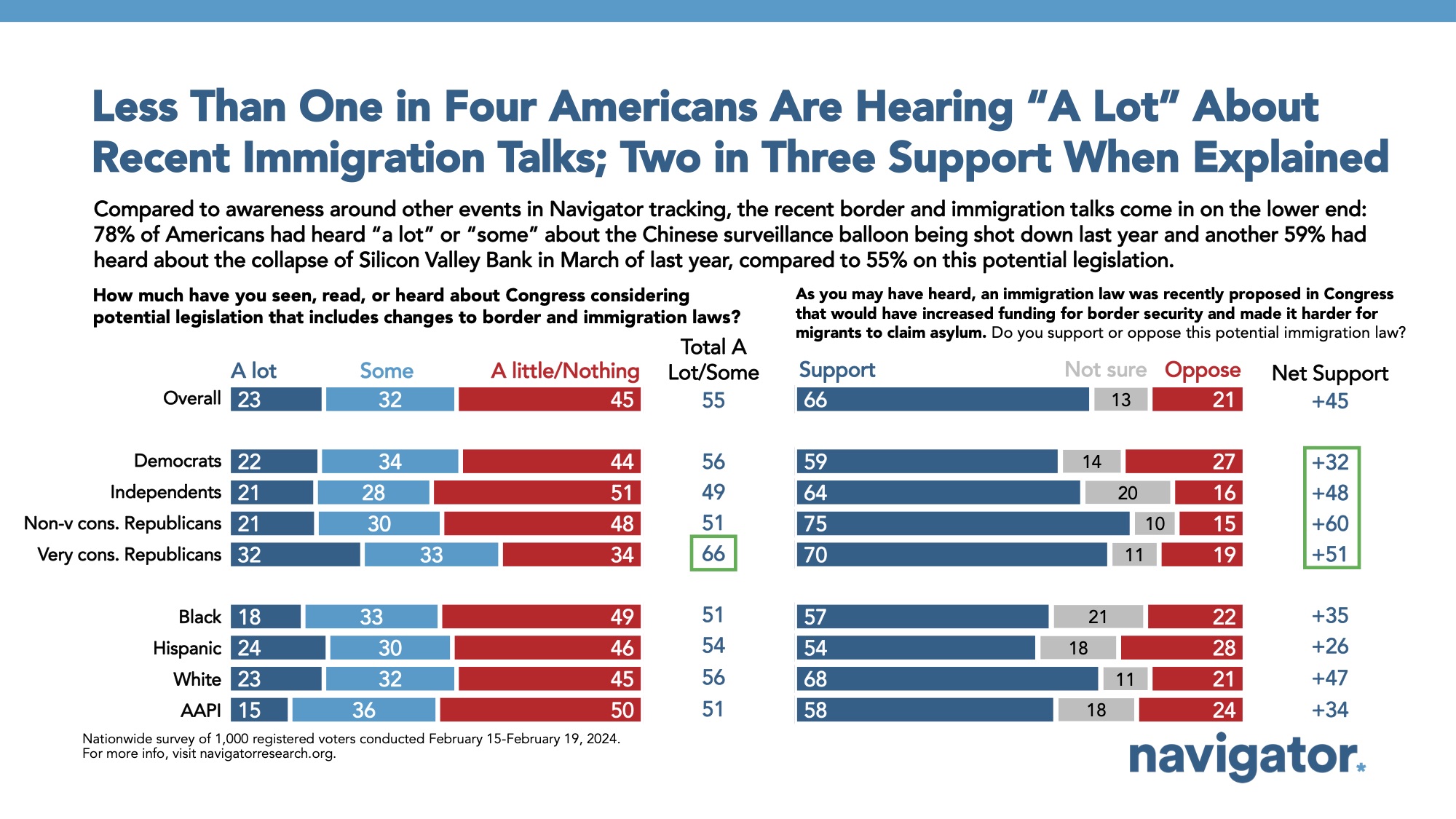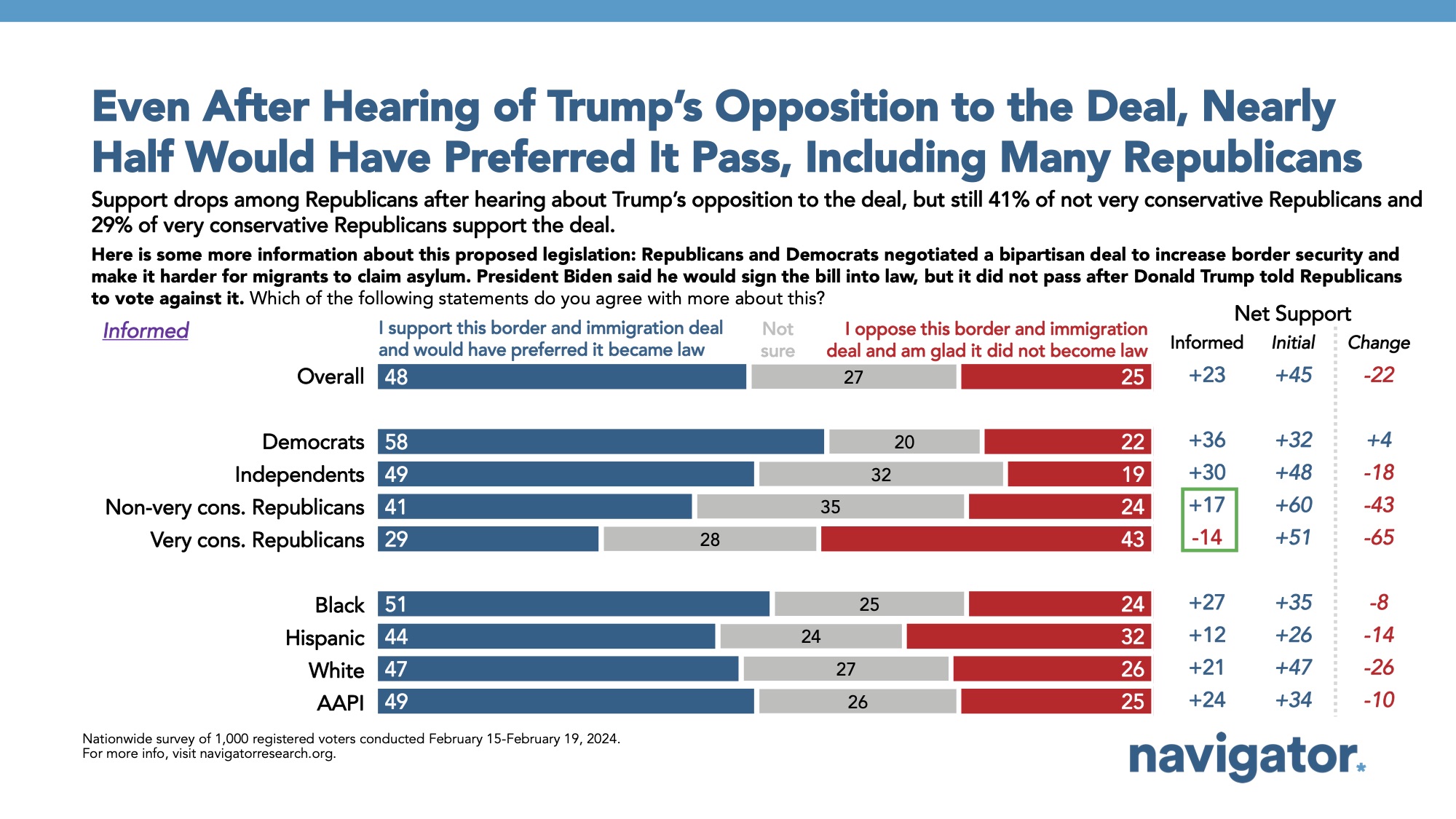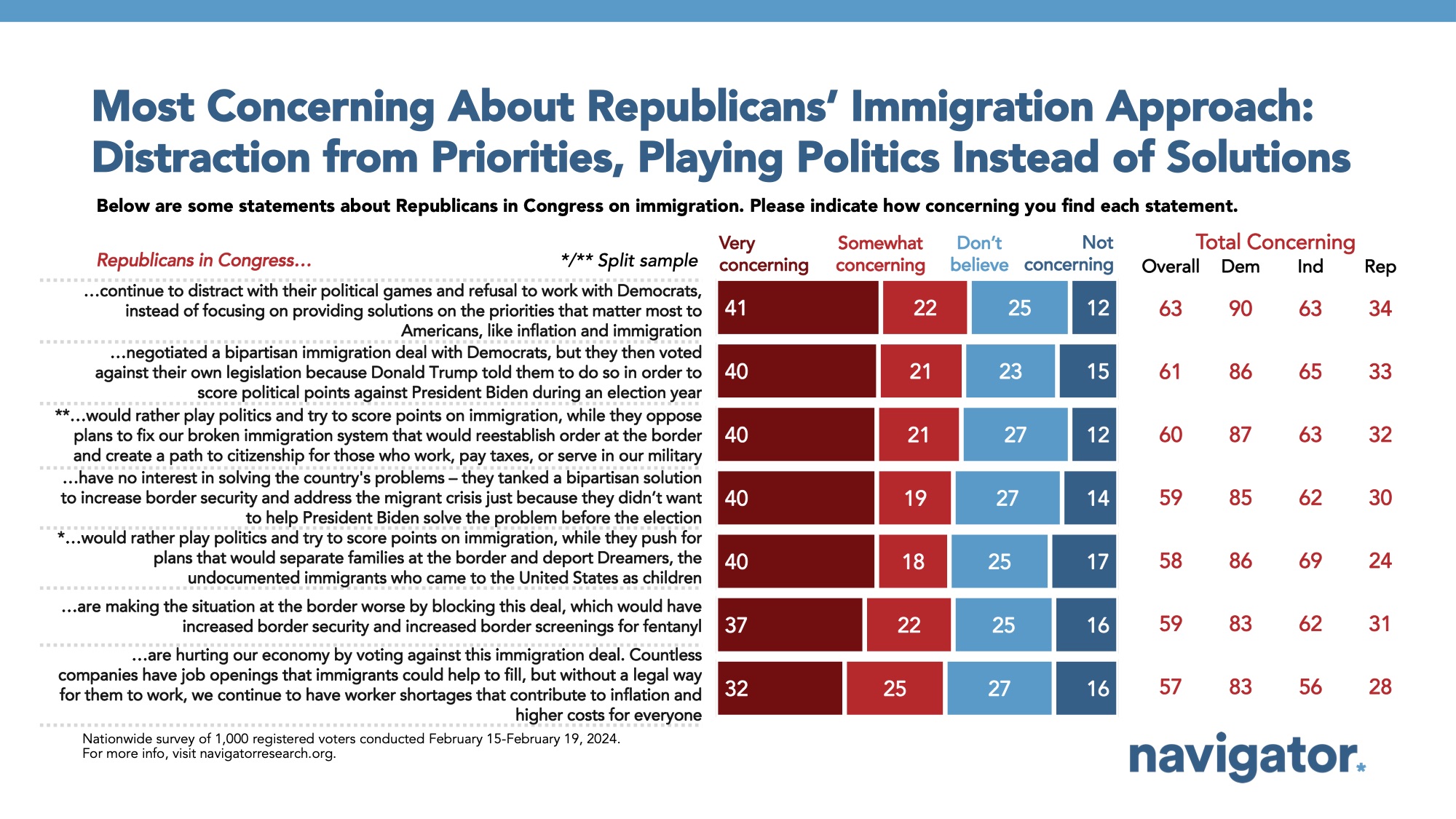Poll: Immigration Deal
This Navigator Research report contains polling data on Americans’ views on immigration, including support for the bipartisan immigration deal, and what Americans find most concerning regarding Republicans in Congress’ approach to immigration.
Two in three Americans supported the bipartisan immigration deal reached in the Senate, but that will not be taken up for a vote in the House.
By a 45-point margin, Americans supported the legislation when framed as “an immigration law recently proposed in Congress that would have increased funding for border security and make it harder for migrants to claim asylum” (66 percent support – 21 percent oppose). The immigration deal earns support across party lines, including among three in four Republicans (net +58; 74 percent support –16 percent oppose), two in three independents (net +48; 64 percent support – 16 percent oppose), and three in five Democrats (net +32; 59 percent support – 27 percent oppose).
- However, when asking a follow-up about the legislation with the context that “President Biden said he would sign the bill into law, but it did not pass after Donald Trump told Republicans to vote against it,” a plurality of Americans continue to support the deal (48 percent support – 25 percent oppose). The drop in margin of support from net +45 to net +23 is driven almost entirely by Republicans: support dropped from net +58 to just net +7. Among very conservative Republicans — who initially supported the legislation by a 51-point margin (70 percent support – 19 percent oppose) — their support for the deal deteriorated to net -14 (29 percent support – 43 percent oppose).
- While 55 percent of Americans report having seen, read, or heard about Congress considering potential bipartisan immigration legislation, very conservative Republicans are significantly more likely to have heard about it (66 percent) than Democrats (56 percent), non-very conservative Republicans (51 percent), or independents (49 percent).
- While immigration ranks third among issues for Congress to prioritize among all Americans (37 percent) behind inflation (51 percent) and jobs and the economy (44 percent), among very conservative Republicans, immigration is the top-ranking issue above all others (70 percent, ahead of inflation at 63 percent and corruption in government at 47 percent).
On the Republican approach to the recent immigration package, Americans’ greatest concerns are that they are focused on the wrong issues and playing politics.
Two in three Americans express concerns that Republicans in Congress’ approach to immigration is not focused on providing solutions to priorities that matter and that they are trying to score political points. 63 percent of Americans find it concerning that “Republicans in Congress continue to distract with their political games and refusal to work with Democrats, instead of focusing on providing solutions on the priorities that matter most to Americans, like inflation and immigration,” including 41 percent who find it “very” concerning. This concern is expressed by nine in ten Democrats (90 percent), two in three independents (63 percent), and even one in three Republicans (34 percent). 58 percent of Americans find it concerning that “Republicans in Congress would rather play politics and try to score points on immigration, while they push for plans that would separate families at the border and deport Dreamers, the undocumented immigrants who came to the United States as children,” including 40 percent who find this “very” concerning.
- Though a majority found it convincing, the least concerning statement was one that focused on how this deal would hurt the economy: “Republicans in Congress are hurting our economy by voting against this immigration deal. Countless companies have job openings that immigrants could help to fill, but without a legal way for them to work, we continue to have worker shortages that contribute to inflation and higher costs for everyone” (57 percent concerning, with only 32 percent finding it “very” convincing).



